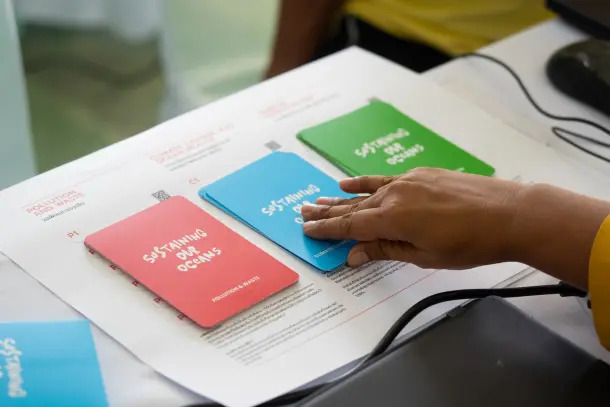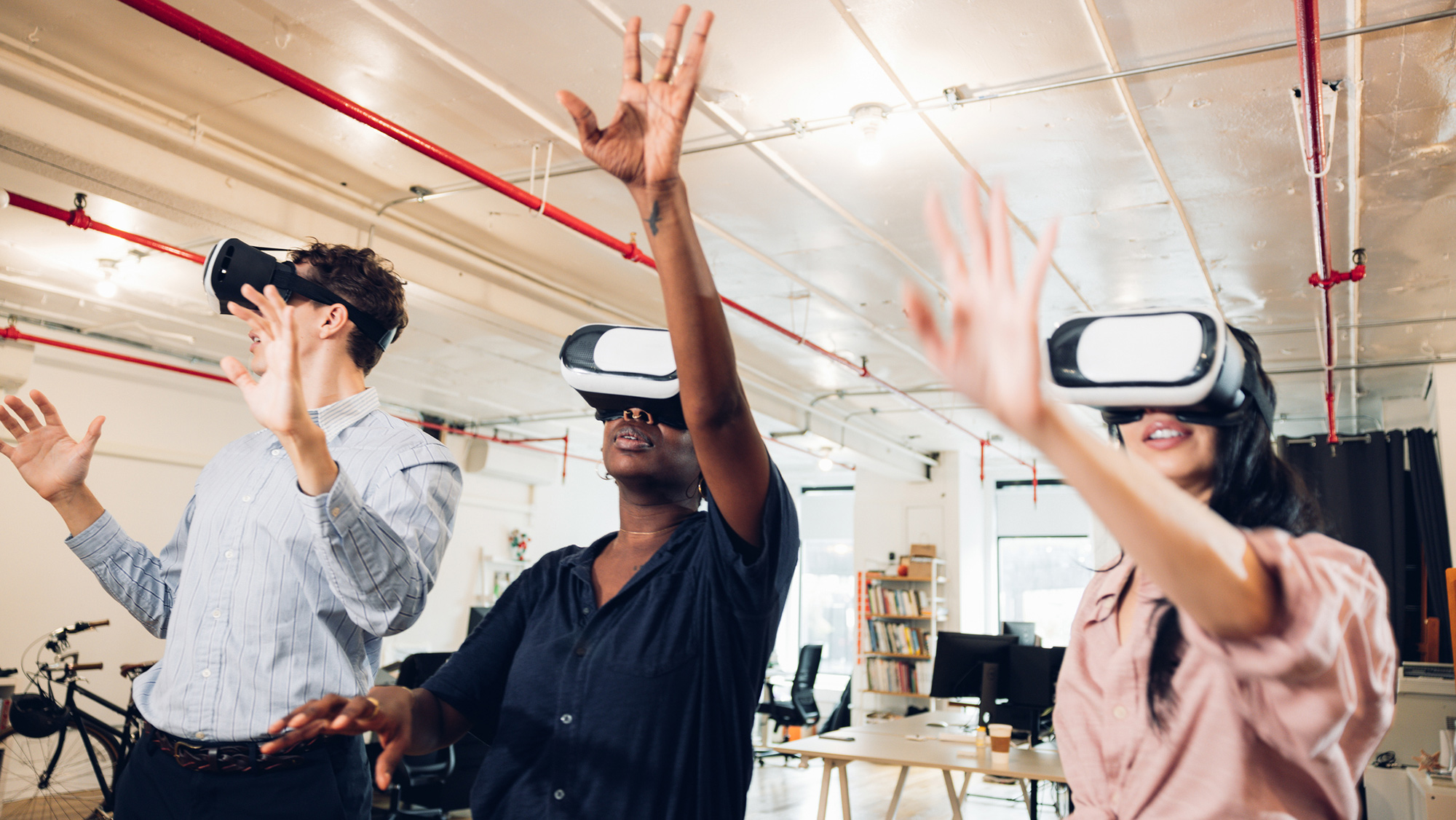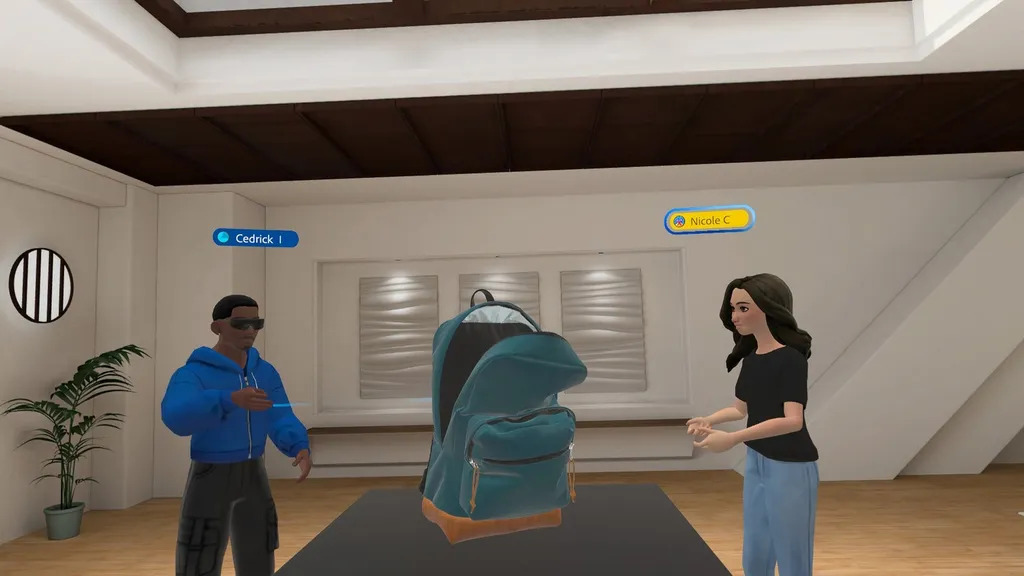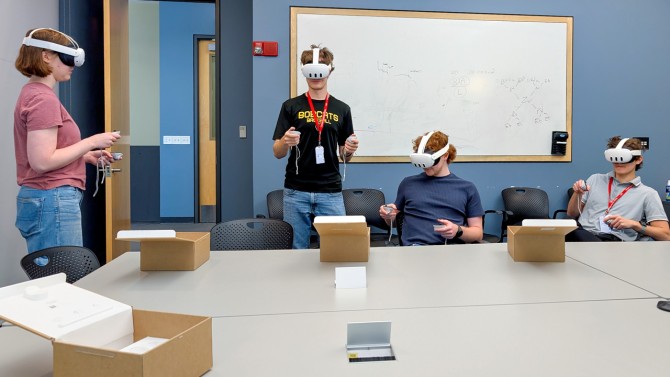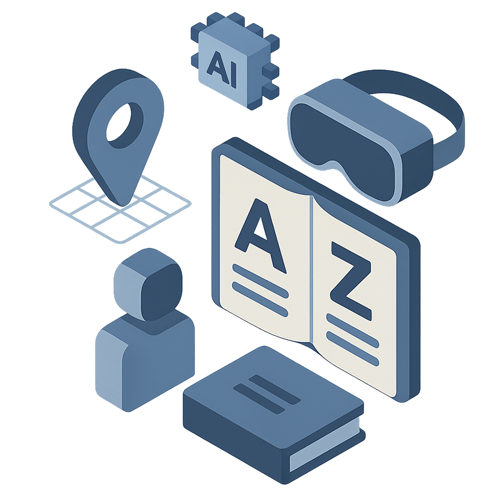These new tools are changing how people think about the ocean,’ – a teacher in coastal Thailand.
On a humid morning in southern Thailand, 12-year-old Wachirayaslipped on a virtual reality headset and took a deep breath. In an instant, she was surrounded by coral, shadowed by reef fish, and waving her arms to nudge away a school of digital sardines.
‘The ocean I knew is not the same anymore — because of plastics and pollution,‘ she said, pulling off the goggles. ‚I never imagined what the bottom of the sea would look like before.‘
Wachiraya lives in Ranong, home to Thailand’s fourth UNESCO Biosphere Reserve. Stretching across more than 300 square kilometresof mangroves, coastal wetlands, and the Andaman Sea, the reserve supports rich biodiversity and communities deeply intertwined with the ocean. But like many parts of South-East Asia, it faces mounting pressure from plastic pollution, marine degradation, and climate change.
To help the next generation better understand and protect their marine environments, the UNESCO Regional Office in Bangkok and Office for UN Coordination for Asia and the Pacific (UNESCO Bangkok) is piloting a new approach to ocean education. With support from Fast Retailing Co., Ltd., parent company of UNIQLO, a new learning package uses augmented and virtual reality to bring the ocean into classrooms in a way students can see, hear, and touch.
‚If we want young people to care about the ocean, they have to feel connected to it, even if they’ve never seen a coral reef with their own eyes,‘ said Rika Yorozu, Education Programme Specialist at UNESCO Bangkok. ‚Our aim is to build a scalable model of ocean literacy that uses immersive learning to foster real-world conservation action.‘
The initiative is part of Sustaining Our Oceans, a regional programmebeing piloted at UNESCO Biosphere Reserves in Indonesia, Thailand, and Viet Nam. It seeks to reshape how ocean issues are taught in schools. By combining immersive technology with locally grounded content — like field trips to mangrove forests, discussions with fisherfolk, and lessons on traditional marine stewardship — the programme aims to help students better understand complex challenges like plastic pollution and climate change and connect that knowledge to everyday actions in their communities.
On 18-19 May 2025, UNESCO held focus groups with 136 students (66 female, 70 male) across five schools in Ranong to test the new materials. Their input helped shape the final AR & VR Diving Library, which was rolled out in July at a two-day training workshop for 46 teachers and 10 educators from non-formal education centers and community learning spaces.
One goal is to move beyond textbooks. The AR Ocean Challenge invites students to identify threats like plastic pollution, acidification and ghost gear, while the Ocean Toolkits module helps connect classroom learning with traditional practices and local conservation. The Diving Library allows students to explore ecosystems they might never experience otherwise, including deep-sea habitats and reef systems.
‚Sometimes, classroom learning doesn’t give students a clear picture,‘ said Ms Anchalee, a teacher at Haad Sai Dam School. ‚The AR game helped them see that ocean problems go beyond just plastic: it’s about how everything is connected.‘
The programme has already gained strong local support. Within days of the July training, officials from 37 schools began integrating the content into their curricula.
One of them, Mr Supamon Inchan, a teacher from Phichai RattanakhanSchool, said he expected the ocean literacy package to spark curiosity among his students and help them feel part of something real. ‚These new tools are changing the way people think about the ocean,‘ he said.
Mr Suphot Phutikiatkhajon, Governor of Ranong, praised the collaboration between local educators, conservationists, and UNESCO Bangkok. ‚This initiative links education directly to the health of our marine ecosystems,‘ he said. ‚It gives students the tools to protect their home.‘
The pilot will be monitored throughout the 2025 academic year, with findings helping guide future scale-up. In 2026, UNESCO Offices plan to disseminate the developed educational resources, including the Diving Library through its Associated Schools Network and Learning Cities across Indonesia, Thailand, Viet Nam, Japan, and beyond. The project has been endorsed by the United Nations Decade of Ocean Science for Sustainable Development.
On 3 November 2025 — International Day for Biosphere Reserves — UNESCO Bangkok and partners will co-host a launch event at Ranong, completed with a student-led exhibition and hands-on demonstrations. It will also mark the soft opening of the Ranong Mangrove Research Center’s new public learning space, connecting conservation with community education.
Back at school, learning about the threats facing the oceans inspired Wachiraya’s peer, 16-year-old Poomtham, to start planning a clean-up activity in his coastal community.
‚I’ll probably start small — by collecting trash and raising awareness,‘ he said. ‚As just one person, I can’t do it all. But I can do something.‘
Quelle:
https://www.unesco.org/en/articles/unesco-biosphere-reserve-students-dive-ocean-learning-through-vr


